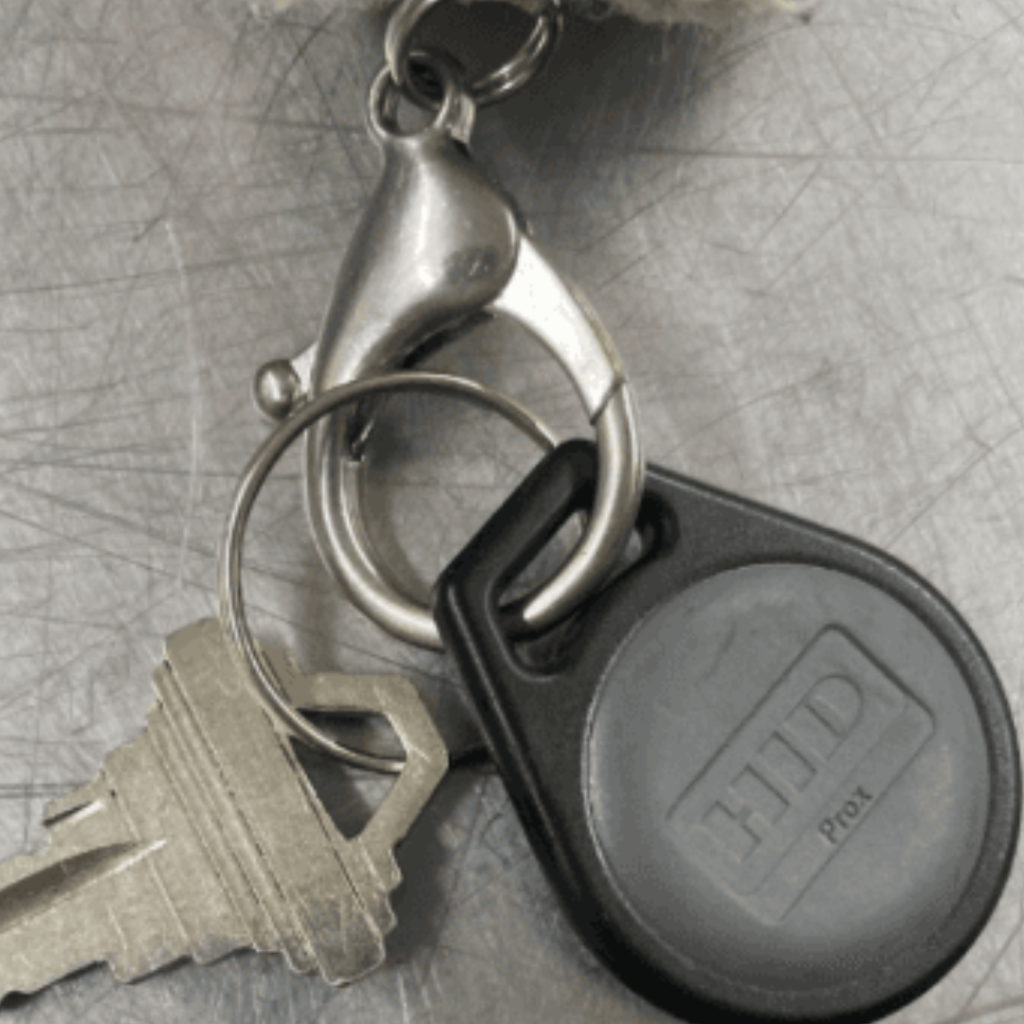Losing your apartment key fob can be stressful. Whether it fell out of your pocket or simply vanished during your day-to-day routine, figuring out what to do next is crucial for both your security and your convenience. In this article, we’ll cover exactly what steps to take if you’ve lost your fob, important things to keep in mind, and how to make sure you’re better prepared in the future.
What to do when you lose your key fob
If you’ve lost your key fob, the first thing to do is stay calm — it happens more often than you think. From there:
1. Contact building management or concierge:
Your building staff should be your first call. Let them know right away that your fob is lost so they can deactivate it. This prevents anyone who might find it from gaining unauthorized access to your building or unit.
They’ll also walk you through getting a replacement, which typically involves paying a fee. Depending on your building’s policies and the type of fob system in place, this fee can vary widely. In Toronto, it’s not uncommon for replacement fobs to cost anywhere from $100 to over $400.
2. Understand your replacement options:
- Through your building: Usually the safest and most straightforward way.
- Specialty fob copying services: Businesses like ours at FobToronto (and our partner network at MiniFob) can duplicate most working fobs. However, keep in mind: we only copy from existing, working fobs — so you’d need your working fob, which isn’t an option if it’s lost.
- Locksmiths: Some people call locksmiths, but for fob issues specifically, it’s best handled by your property management team. A locksmith might help you gain physical access, but not replace a building-specific fob.
Why it’s important to act quickly
Losing a fob isn’t the end of the world, but it’s still something you’ll want to deal with right away. Not being able to get into your own building or unit is inconvenient — and waiting too long might mean extra hassle or fees.
If someone finds your fob, they wouldn’t actually have access to any of your personal information (you can see more about that in our article “What Information Is Stored on a Key Fob”), but it’s still best to let your building know so they can deactivate it. That way, you avoid any awkward situations or security concerns.
It’s also smart to double-check your lease or building policies. Many have clear rules about lost fobs, replacement costs, or making backups, and knowing this in advance can help you avoid surprises.
If you’d like some ideas on how to better keep track of your fobs, you can also check out our posts “Where to Place / How to Take Care of Your RFID Tags” and “Are Key Fobs Trackable?” for helpful tips.
Why having a backup makes life easier
While losing a fob might not be entirely preventable, you can absolutely make the fallout easier. Having a spare fob is one of the simplest ways to avoid lockouts and the stress of replacement.
At MiniFob and through our FobToronto partner, we help people create backup copies of their apartment fobs (all perfectly legal and within building systems — as long as your original fob is active, so is your copy). Having a spare on hand can mean avoiding hefty fees or being locked out for days waiting on a replacement.
For more thoughts on this, check out our post “How Many Spare Keys Should I Have?” to see what might make sense for your situation.
Final thoughts: Lost fob? What to do
So — lost fobs: what to do? In short, report it immediately to your building, understand the replacement process, and think about preparing for the future with a backup. Losing a fob doesn’t have to be a disaster. By taking quick action and planning ahead, you can make sure it’s just a minor bump in your day.
If you ever want to explore getting a spare key fob to avoid this hassle next time, or simply have questions about how key fob duplication works, we’re here as a trusted resource. Stay informed, stay prepared, and your access will always stay secure.



Recent Comments